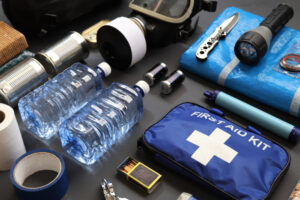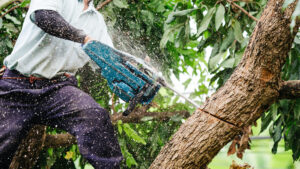October 13th was International Day for Disaster Reduction. In honour of this annual campaign to reduce risk, we’re sharing ten disaster preparedness tips. Hurricane Dorian has been yet another reminder that nature can be terrifying and devastating. Locally, we’ve had to contend with Tropical Storm Karen and devastating floods in the aftermath. It may seem that there’s not much you can do in the face of a disaster. However, there are many steps that you and your family can take to ensure that you are as protected as possible.
Stay informed
You’ve got to know what type of disaster you may be facing and who you should contact in case of an emergency. Listen to local news. If you receive any forwarded WhatsApp messages announcing hurricanes/tsunamis/volcanoes, verify these warnings with a credible news source. The ODPM has provided a list of disaster preparedness contacts – it’s a good idea to print this out a place it prominently in your house. You may not be able to access the internet in a disaster.
Have an Emergency Kit 
Your kit should have canned food and bottled water, first aid supplies, bleach, a flashlight with extra batteries, personal hygiene items like soap and hand sanitizer and matches. Remember to check your emergency kit regularly and replace supplies as needed!
Create an Evacuation Plan
You should know how to get out of your house safely before you need to. Plan for all family members to evacuate and muster at a safe location. Then, work out all routes away from your house – don’t forget to consider back roads as major roadways could be blocked in a disaster!
Learn how to Turn Off Utilities
Be honest – do you know how to turn off your water, electricity and gas at the main? Don’t wait until your house is flooding to figure out how to lock off the water. Make sure all family members know as well – you never know who will be away from home.
Ensure your Insurance Coverage is Up-to-date
If you are the victim of a disaster, you shouldn’t also have to figure out how to deal with the aftermath alone. Maritime offers residential insurance coverage that protects your property and contents against perils like earthquakes, floods and
hurricanes. You may not be able to prevent a disaster striking your home, but you can ensure that you’ll recover quickly. This isn’t just for homeowners; even if you’re renting, you can insure the contents of your home.
Store Important Documents Safely
Quick – where’s your passport, birth certificate, important medical records? They may be safely tucked into the second drawer of your desk but that won’t keep them safe from a disaster. Consider investing in a small home safe – there are even waterproof and fireproof options. If a disaster strikes and you’re safe-less, store these docs in resealable plastic bags.
Learn First Aid
Basic skills can really help if a loved one gets hurt. Here’s a list of first aid training companies in T&T.
Clean up 
That clogged drain that you’re always meaning to clear – now’s the time to do it! Trim trees and shrubs. Look outdoors – do you have anything that can become airborne in high winds? You should secure that table in the garden before the disaster.
Create a Communications Plan
Figure out ahead of time how you will contact family members to let them know you are safe. You can designate a trusted person outside the affected area to act as your point of contact; that way all family members can check in with them.
Don’t forget your pets
Pets are family too! Don’t leave them outdoors in a disaster and don’t forget them if you evacuate. Your emergency kit should also include emergency pet supplies – like dog food.
We know you’ve heard this a million times before but better safe than sorry. For more details on disaster preparedness, check out the ODPM’s Family Emergency Plan.